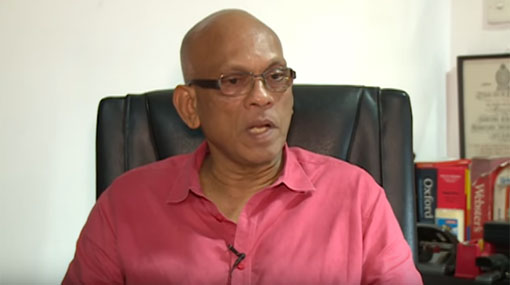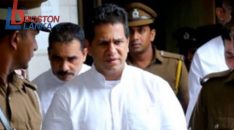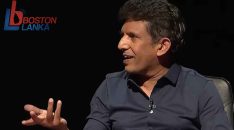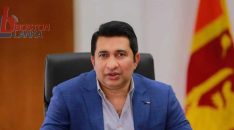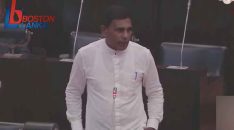The President of the Bar Association of Sri Lanka (BASL), Geoffrey Alagaratnam, says that it is very unfortunate that people have misunderstood the role of the Bar Association and its president in unofficial bar appointment to make it a political issue and a communal issue.
The scheduled election of the Bar Association of Sri Lanka was postponed until further notice when the Judicial Service Association (JSA) refused to act as presiding officers at the election, due to the actions of the BASL President.
The JSA had blamed the Bar Association and its President Geoffrey Alagaratnam over the recent appointment of lawyer Mr Ramanathan Kannan from unofficial bar directly as a High Court Judge, which it claims is a violation of the constitution and judicial service tradition. However, in an exclusive interview with Ada Derana, Mr Alagaratnam said that is a “misunderstanding of how things happen.”
He says there has never been a practice of having the appointment of members from the unofficial bar approved by the Bar Council and the Executive Committee. “We have had several members appointed to the unofficial bar and I like to say that we have always had a tradition of persons being appointed not only from the career judiciary but also from the official bar, attorney general’s department and unofficial bar.”
“What happens usually is that the leaders of the Bar are consulted and the leaders make their own inquiries to see whether people are suited and make the recommendation for the appointing authorities to in turn make their inquiries.” He said that this can be seen in the many unofficial bar members who were appointed to the Supreme Court such as Mark Fernando and more recently Prasanna Jayawardena. He said that even High Court judges have been appointed from the Bar.
“None of these people were appointed after the Executive Committee and Bar Council approved it and that will be an unhealthy practice if that has to go before those two bodies. Because then it will be like political campaigning.”
President’s Counsel Geoffrey Alagaratnam stated that for over one year there has been shortage of Tamil-speaking judges in the Northern and Eastern provinces and that representations have been made from the lawyers from those areas due to the delays in hearing those cases and the work piling up.
“These matters were discussed by officers of the Bar Association with officers of the Judicial Services Commission including his lordship the Chief Justice.” He said that Mr Kannan’s application of nomination then came from the President of the Batticaloa Bar. “And as I told you Bars don’t pass resolutions. The President of the Batticaloa Bar recommended him saying he is a good candidate, why don’t you forward this person up for appointment,” he said. “Kannan was then in Batticaloa and he had over 17 years of practice as a lawyer. Then it came to me as the President and I made my own inquiries because I don’t know who Kannan is.”
Because of this shortage of Tamil-speaking judges, the BASL President said he referred it to the Chief Justice. “I said this person is there because the Akkaraipattu person was not materializing. This was in September last year.” He said that the Chief Justice gave it his okay to send it to President Maithripal Sirisena. “Then in December I understand His Excellency sent the papers to the Chief Justice as well as to the Attorney General. They both agreed.”
Mr Alagaratnam pointed out that according to the constitution, the President cannot make such appointment by himself and neither can he force the President to make appointment. He said that the President has to consult the Attorney General and the Judicial Service Commission, which he did and that they both approved. “So, all three of the appointing authorities agreed to appoint Kannan.”
“So, this is not a situation where I did something wrong or I used undue influence to have Mr Kannan appointed,” he told Ada Derana. He said that to confuse the Bar Association’s election with the appointment of Mr Kannan is “unfortunate” and that he thinks it’s not the way to go. “It’s very unfortunate that people have misunderstood the role of the Bar Association president and the role of the Bar Association in unofficial bar appointment to make it a political issue and a communal issue.”

